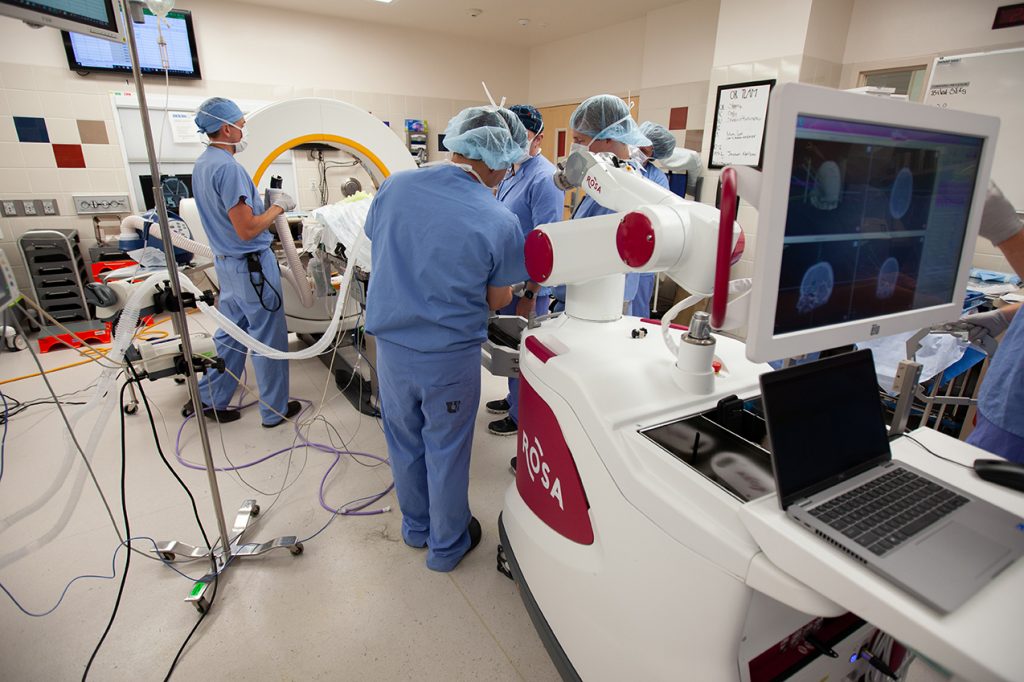A recent medical breakthrough in Canada has provided new hope for individuals suffering from epilepsy. A talented neurosurgeon successfully performed a groundbreaking procedure using robot-assisted deep brain stimulation surgery, as reported by CTV News. This pioneering approach offers a potential solution for managing epilepsy and has already yielded promising results.
At the University Hospital of the London Health Sciences Centre, renowned neurosurgeon Dr. Jonathan Lau discussed his outstanding accomplishments. He has used the Renishaw Neuromate robot to perform three surgeries since the beginning of the year. This cutting-edge tool makes it possible to precisely insert electrodes in difficult to reach parts of the brain. Surprisingly, after the procedure, individuals who underwent this robot-assisted surgery were able to go back home within a day or two, indicating a very successful outcome.

The surgery itself is comparable to a pacemaker implant for those with heart issues. Patients with epilepsy suffer erratic electrical activity in their brains, which causes seizures. The abnormal rhythms of the brain can be corrected by implanting electrodes in particular areas, effectively preventing seizures and reestablishing normal brain function.
Interestingly, the decision to incorporate the robotic device into the procedure was a fortuitous one. Due to limited alternatives, the medical team decided to explore the potential of this cutting-edge technology. As it turns out, they became pioneers in Canada, as no one had previously employed the robot for this specific purpose.
The many benefits of robotic help in this difficult surgery were stressed by Dr. Lau. The hazards connected with the treatment, he said, have been greatly minimized by advances in imaging and technology. Additionally, this ground-breaking procedure gives patients who were previously disqualified from surgery new options.

The rise of robot-assisted surgeries is increasingly prevalent across various medical fields. The high precision offered by these robotic devices leads to superior outcomes and faster recovery times. In a recent report, we highlighted the use of robots by UK surgeons to perform surgeries on women afflicted by endometriosis, resulting in improved post-operative recovery and fewer complications.
The remarkable success of robot-assisted deep brain stimulation surgery for epilepsy represents a significant stride forward in the treatment of neurological disorders. This groundbreaking achievement brings renewed hope and the promise of an enhanced quality of life for patients worldwide.


